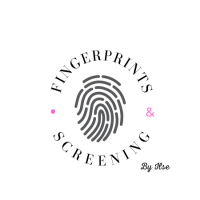Indiana gaming license
Applying for an Indiana gaming license is a complex process that depends on the specific type of gaming activity for which you are seeking the license. Generally, the application process follows a number of steps and requirements. Here is a general overview of the process:
- Identify the type of license: Determine the type of gaming license you need based on the type of gaming activity you wish to conduct, such as a casino, racetrack-casino, gaming machines, and so on. Consult the Indiana Gaming Commission (IGC) or a professional advisor to identify the appropriate license.
- Gather documentation: You will need to provide various documents as part of your application, including financial information, company structure, ownership details, operational plans, security measures, and personal information of owners and operators.
- Submit the application: Complete the application form provided by the IGC and submit it along with all required documentation. Make sure to provide all requested information fully and accurately.
- Investigation and background checks: The IGC will conduct a comprehensive investigation of the applicants, including background checks on owners, operators, and stakeholders. This often involves checking criminal records, financial history, and reputation of the applicants.
- Payment of fees: There may be application fees and other costs associated with obtaining a gaming license. These fees vary depending on the type of license and the scope of activities.
- Inspection and approval: After submitting the application and successfully passing the background checks, the IGC will likely conduct an inspection of the facilities and operations you intend to operate. If everything is in order, the license may be granted.
It is important to note that these steps are a general guideline, and the specific process and requirements may vary. It is highly recommended to contact the Indiana Gaming Commission or a professional legal advisor for detailed and up-to-date information on applying for a gaming license in Indiana.
What are the different types of gaming licenses in Indiana?
In Indiana, there are several types of gaming licenses issued by the Indiana Gaming Commission (IGC). Here are some of the key types of gaming licenses in Indiana:
Casino License: This license allows a company to operate a full-fledged casino, including table games such as blackjack, roulette, poker, and slot machines. There are currently multiple casinos in Indiana eligible for this license.
Racetrack-Casino License: This is a specific license that allows racetracks in Indiana to offer casino games as well. Racetrack-casinos combine horse racing with casino activities such as slot machines and table games.
Gaming Machine License: This license allows businesses to operate gaming machines, such as in gaming parlors or certain hospitality establishments. These licenses often have limitations on the number of machines that can be placed.
Internet Gaming License: Indiana has also legalized online gambling. An internet gaming license allows companies to offer online casino games and gambling activities to players in Indiana, provided they meet the requirements and obtain a license from the IGC.
In addition to these main licenses, there may also be other licenses and permits required for specific aspects of the gaming industry, such as the sale of alcoholic beverages, operation of a sportsbook (sports betting), and more.
It is important to note that the specific rules and requirements regarding each license may vary, so it is always advisable to contact the Indiana Gaming Commission or a professional legal advisor for detailed information about the different types of gaming licenses and their associated requirements in Indiana.
Are fingerprints required for an Indiana gaming license application?
Yes, it is common for fingerprints to be required as part of the background check when applying for an Indiana gaming license. The purpose of taking fingerprints is to verify the identity of the applicant and conduct a thorough criminal record check.
The process for submitting fingerprints may vary, but generally, you will need to schedule an appointment at an authorized fingerprinting agency or a law enforcement agency to have your fingerprints taken. The Indiana Gaming Commission (IGC) will often provide specific instructions on where to go for fingerprinting and which forms to fill out.
The fingerprints are typically used by the IGC to conduct a background check through various government agencies, such as the Federal Bureau of Investigation (FBI) and the Indiana State Police, to check for any criminal records or other relevant information. This helps the IGC assess the integrity and suitability of the applicant to obtain a gaming license.
It is advisable to contact the Indiana Gaming Commission or a professional legal advisor for specific information on the fingerprinting process and other requirements related to applying for an Indiana gaming license.
